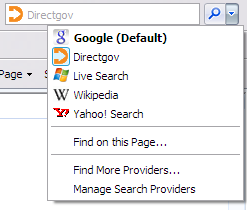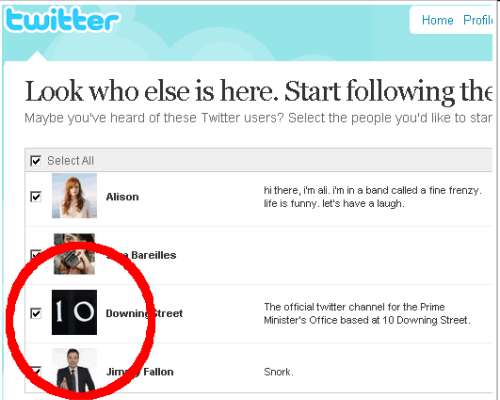I didn’t write about Mash The State when I first heard about it, because the ambitions seemed embarrassingly modest: getting each council in the country to offer an RSS feed by Christmas. In 2009? – seriously?
And then I note that, of the three e-government super-sites – Directgov, Businesslink, NHS Choices, annual budget approx £30m each – only the NHS site offers RSS feeds (and even then, only a few). Directgov has recently started offering its first RSS feed, but if you look at the source code, you’ll note that the URLs all begin with slashes. In other words, they aren’t valid RSS. Or in other less diplomatic words, they’re useless. If a guid isn’t globally unique, then it isn’t a guid. Still, at least they’re trying. Businesslink doesn’t seem to have anything in RSS. At all.
Meanwhile, the rest of the web is racing ahead. I’m especially proud of the DFID Bloggers site in that regard: helpful as ever, WordPress offers pretty much every list available through the site as an RSS feed, if you know the right URL to call. Each category has an RSS feed. Each tag has an RSS feed. Each individual author has an RSS feed. Heck, you can even get search queries as RSS feeds: meaning, in effect, you can have a customised RSS feed of ‘every time that WordPress site mentions X’. All out of the box; at zero charge and zero effort. They just happen.
RSS continues to delight me as a website designer and builder. Recent WordPress releases have added some extra – undocumented? – tricks: for example, if you can construct the right URL query string, you can get an RSS feeds of all items except those from a certain category. (Clue: ‘cat=-1’.) And it’s going to get even better imminently, with the inclusion of the brilliant SimplePie, for consuming RSS, into the next WordPress release.
I’ve built entire sites like Real Help Now and onepolitics powered solely by RSS feeds from third-party sites. I’m even building a couple of WordPress sites now which will use their own internal RSS feeds to surface content, rather than me coding ‘proper’ PHP/SQL queries. It’s just easier. And when you’re doing something as an outsider because it’s easier than the ‘proper’ internal method, you know we’ve reached somewhere significant.
The truth is, if your website still isn’t offering an RSS feed, you’re falling further and further behind the rest of the web, and you’re depriving yourself of the magic which eager geeks might bring to your content. But before you go spending money adding an RSS feed to, say, your press release pages – don’t. There’s a content management solution which is optimised for delivering text documents on a rolling basis, presented chronologically. You’re looking at it.
 Tickets have just gone on sale for this year’s
Tickets have just gone on sale for this year’s 

